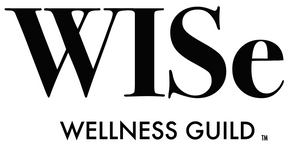
Accepting Boundaries in Transition

Sometimes the old adage “the only constant in life is change,” feels painfully appropriate. Especially since the start of the pandemic, change has been the norm and each subsequent transition feels incrementally harder. Although I would prefer to be alone in this, the conversations I have with women (and men!) in our workshops highlight that this is a reality so many of us are facing.
The tool I rely on and recommend the most during all of these ups and downs is the creation of intentional boundaries. Boundaries can help us to avoid burnout, reduce overload, and find balance. All of those make room for us to be our best self and add value in the areas that truly matter. But what happens when the boundaries themselves feel like yet another transition? After all, we are putting up guardrails where they weren’t previously.
For that, we dig deeper into our experience of transition.
The unrelenting transition throughout the pandemic has been aligned with the stages of grief model established by Elisabeth Kübler Ross. You’re likely familiar with some of the stages—denial, anger, bargaining, depression and acceptance. It's possible, if not likely, that you have experienced all of those stages over the past 2+ years. Alternatively, the Transitional Change Model associated with William Bridges feels even more relevant and personally, gets me closer to that concept of “acceptance” in a more productive way.
A quick primer on the Transitional Change Model:
“Transition is the inner psychological process that people go through as they internalize and come to terms with the new situation that the change brings about.”

Stages of Transition
(source: https://wmbridges.com/about/what-is-transition/)
Endings
“Transition starts with an ending. This first phase begins when people identify what they are losing and learn how to manage these losses.”
Neutral Zone
“People go through an in-between time when the old is gone but the new isn’t fully operational. This is the time between the old reality and sense of identity and the new one. People are creating new processes and learning what their new roles will be. They are in flux and may feel confusion and distress.”
New Beginnings
“Beginnings involve new understandings, values and attitudes. Well-managed transitions allow people to establish new roles with an understanding of their purpose, the part they play, and how to contribute and participate most effectively. As a result, they feel reoriented and renewed.”
We must recognize (as individuals, as peers, as leaders) that change can put people in crisis and everyone will move through the stages of transition at different rates. When viewing the pandemic or any change since through this model, I have come to accept…
-
The endings are hard. They are hard for me and they are hard for others. They are hard because they are loss and even when it is “for the better,” or “not a big deal,”* they still serve as a challenge that needs to be managed. Taking time to recognize and process each nuanced ending and define the what’s-next requires time, energy, and grace (see #3!). *Anyone else feed themselves those lines?
-
Yes, the creation of boundaries is a transition in itself. Setting boundaries for yourself in practice can be difficult, especially when you are in that period of flux—you know each boundary has value, but until it becomes a habit it feels like it doesn’t quite fit. Your boundaries might also be a transition for the people they impact—your colleagues, your managers, your family members and friends. Putting up that guardrail requires others to make adjustments too… and that is okay. It isn’t your job to manage each person’s transitional process—just to respect it (also see #3!).
-
I need grace, and so do the people around me. Most of the time I am hardest on myself, so the reminder that I need grace is critical. Additionally, when I am being hard on myself I start to hold unrealistic expectations of others, too. With this at the forefront of my mind, I can give others space for their own grief and loss when it comes to endings and as they fumble through the ambiguity of the neutral zone and find their way to the renewal of the new beginning.
If we can begin to see our own—and each person’s—daily journey as one of overlapping stages of transition, we can find more empathy and give more support. We can accept, with open arms, all of the muck in the middle knowing that it will lead to progress in the new beginning.
Follow Gild Collective on Instagram, Twitter, Facebook, and LinkedIn
Sign up for our newsletter for weekly wellness you can trust.
Join us on Instagram at @wise_wellness_guild for daily inspiration, community spotlights and wellness resources.
Header Image by Monstera on Pexels

Leave a comment